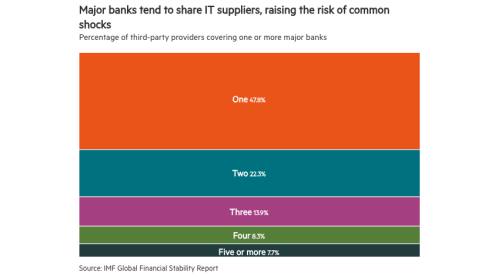The latest stress test performed on Chinese banks has shown persistent capital pressure across the sector.
The stress test, published in the People’s Bank of China’s 2023 Financial Stability Report, shows that, in a mild economic downturn, the average capital adequacy ratio of the country’s 19 systemically important banks would drop to 14.5% by end-2025 from 16.3% at end-2022.
The latest testing assumes more pessimistic economic forecasts than in previous years. However, large state banks and most Fitch-rated joint-stock commercial banks should remain resilient to a mild economic shock.
The central bank’s mild impact stress scenario assumes real gross domestic product growth slowing to 3.5% in 2023 and 3.2% in 2024.
China’s growth is projected to reach 5.2% in 2023 before slowing to 4.5% in 2024, says the World Bank. The economy is experiencing weakness in its real estate sector and low global demand, while high debt levels, an ageing population, and slower productivity growth remain structural issues that the country is facing.
Following the stress test’s results, relevant credit growth in China is unlikely as it could further undermine loss absorption capacity at banks and increase risks to financial stability, according to Fitch Ratings. The rating agency instead expects the country to continue a targeted credit allocation approach, focusing on selected banks in channelling credit to strategic sectors for the economy.












